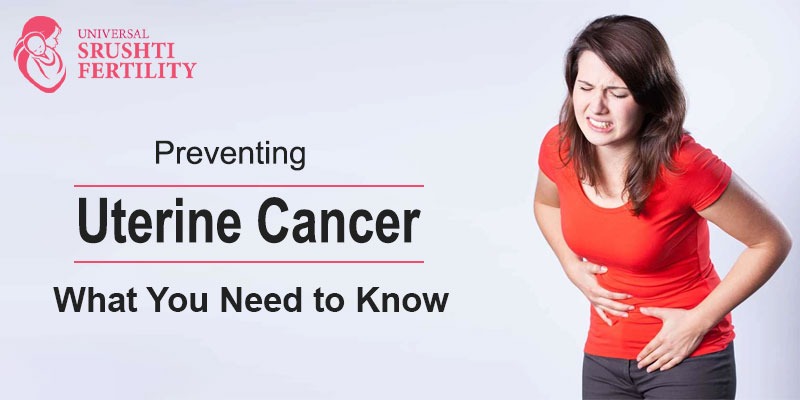“Preventing Uterine Cancer: What You Need to Know”
Uterine cancer, also known as endometrial cancer, is a type of cancer that affects the lining of the uterus. It is the most common type of cancer affecting the female reproductive system. While uterine cancer can be treated, it is often more effective to focus on prevention. In this blog post, we will discuss the risk factors for uterine cancer and provide strategies for preventing it. By understanding your risk and taking proactive steps, you can help protect yourself from this potentially life-threatening disease.
There are several known risk factors for uterine cancer. Some of the most common include:
Obesity: Individuals who are overweight or obese are at increased risk for uterine cancer. This may be due to higher levels of estrogen, which can stimulate the growth of cancer cells in the uterus.
Hormonal imbalances: Certain hormonal conditions, such as having high levels of estrogen or testosterone, can increase the risk of uterine cancer. This may be due to the presence of conditions such as polycystic ovary syndrome (PCOS) or uterine fibroids.
History of uterine conditions: Women who have had a previous diagnosis of endometrial hyperplasia (an overgrowth of the uterine lining) or endometrial polyps (non-cancerous growths in the uterus) are at increased risk for uterine cancer.
Other risk factors: Other risk factors for uterine cancer include having diabetes, a family history of uterine or ovarian cancer, and being over the age of 50. Women who have never given birth or who have taken estrogen-only hormone replacement therapy may also be at increased risk.
There are several lifestyle changes that can help prevent uterine cancer. These include:
Maintaining a healthy weight: As mentioned earlier, obesity is a risk factor for uterine cancer. By maintaining a healthy weight through diet and exercise, you can help reduce your risk.
Exercising regularly: Regular physical activity has been shown to reduce the risk of uterine cancer. Aim for at least 150 minutes of moderate intensity exercise, or 75 minutes of vigorous intensity exercise, per week.
Avoiding tobacco and excessive alcohol consumption: Both tobacco use and excessive alcohol consumption have been linked to an increased risk of uterine cancer. It is important to avoid these behaviors or to quit if you currently use tobacco or drink excessively.
For individuals who are at high risk for uterine cancer due to certain conditions or family history, medical interventions may be recommended. These may include hormone therapy or prophylactic surgery to remove the uterus or other reproductive organs. It is important to discuss your options with your healthcare provider to determine the best course of action for you.
Regular screening is an important part of preventing uterine cancer. This can help catch any potential problems early, when they are most treatable. Some common screening tests for cancer in the womb include pelvic exams and Pap smears. During a pelvic exam, your healthcare provider will check your uterus, ovaries, and other reproductive organs for any abnormalities. A Pap smear is a test that collects cells from the cervix (the lower part of the uterus) to check for any abnormal changes that could be a sign of cancer.
In addition to regular screening with your healthcare provider, it is also a good idea to perform self-exams at home to check for any signs of uterine cancer. This can be done by performing a bimanual exam, in which you insert two fingers into your vagina and press down on your pelvic area to feel for any abnormalities. You should also pay attention to any unusual vaginal bleeding or discharge, as these can be signs of uterine cancer. If you notice any changes or have any concerns, it is important to bring them up with your healthcare provider.
Uterine Cancer Treatment Near me
Conclusion
Uterine cancer is a common but potentially life-threatening disease that can affect women of all ages. By understanding your risk and taking proactive steps to prevent it, you can help protect yourself from this disease. Some key steps for preventing uterine cancer include maintaining a healthy weight, exercising regularly, avoiding tobacco and excessive alcohol consumption, and getting regular screenings. If you have any concerns about your risk for uterine cancer or want to discuss prevention strategies with your healthcare provider, it is important to speak up. By taking control of your health, you can help reduce your risk of uterine cancer and live a healthier, happier life.


